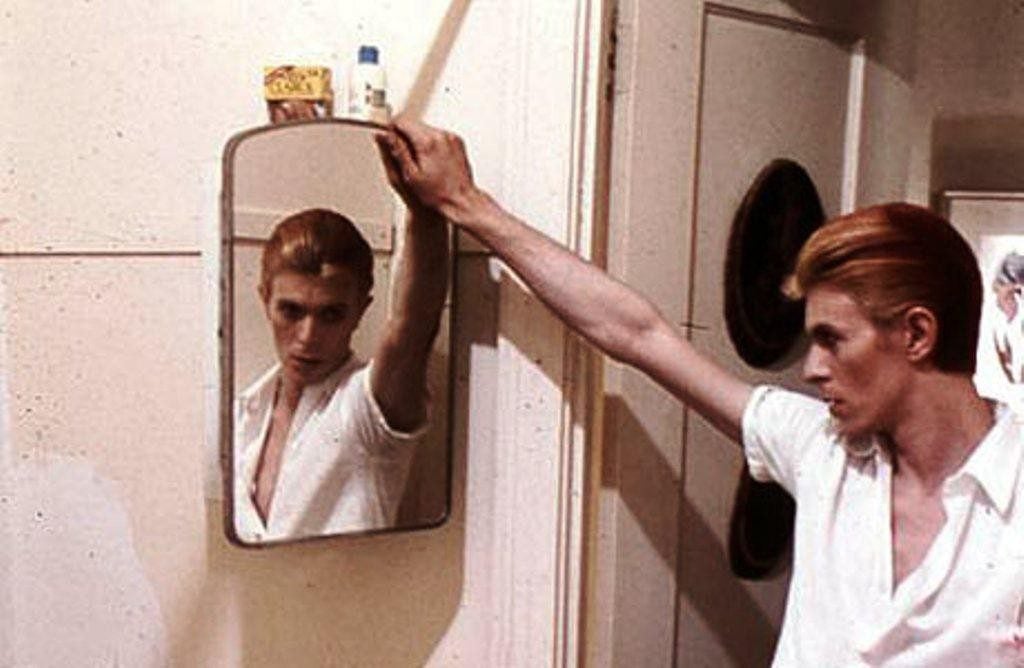One of the more vapid mistakes of our culture is its constant equating of beauty with prettiness. Certainly, a thing of beauty might be called pretty. But prettiness, likability, and shininess make a thing beautiful as throwing glitter on a pile of feces makes it art.
This is beautiful:
This, not necessarily so:
To elevate eye-candy to summit of beauty is to render it unable to give evidence of the supernatural in Nature, limiting it to the cute, the sexy, the shiny, and the otherwise miserable. Allow me to speak, like a nail in a coffin, my negative thesis: Beauty is not a conglomeration of likable traits.
The truth about beauty is far more mysterious, mystical, and life-changing. The experience of beauty is an experience of the beautiful object as simply being. We know this innately. We naturally let beautiful objects simply be.
We cringe when a man uses a Van Gogh as a symbol of wealth. We wince when a poem is read solely for the sake of an essay, turned in solely for the sake of a grade. It is an offense to simply use Hopkins’ lines for academic or girl-impressing achievement…
For skies of couple-colour as a brinded cow;
For rose-moles all in stipple upon trout that swim;
Fresh-firecoal chestnut-falls; finches’ wings…
…without appreciating them insofar as the simply and wonderfully are. We are offended when a beloved mountaintop is blown up by a coal company that has never lived in its shadow. We are saddened when sublime music is ignored.
It seems to me that there are only three ways to view an object:
1. As simply being.
2. As being useful for an end outside of itself.
3. As not-being (as when we ignore an object).
None of these views are good or bad in themselves. It’d be silly not to treat the wrench as being useful for an end outside of itself (like building the world’s best tree-fort). It’d be similarly silly not to treat the black lines framing a widescreen movie as not-being. But we are naturally offended by the beautiful object being used for some other end, or being treated as not-being. Our natural response to beautiful objects is to let them be.
The implications of this simple truth are phenomenal. The fundamental truth about any object in existence (the truth that must be known to us before we know any other truths about that object) is that the object is. (You cannot know your wife is angry before you know your wife is, nor your car keyed before the existence of your car.) Beauty then, insofar as it informs us that an object simply is and demands we treat the beautiful object as simply  being, is a certain shining out of the very being of that object to our intellect. As Jacques Maritain puts it:
being, is a certain shining out of the very being of that object to our intellect. As Jacques Maritain puts it:
“The Beautiful is that which gives joy, not all joy, but joy in knowing; not the joy proper to the act of knowing, but a joy abounding and overflowing from this act because of the object known. If a thing uplifts and delights the Soul by the very fact of being granted to its intuition, it is good to lay hold of, it is beautiful.”
To experience beauty is to know being. It is not to know prettiness, or shininess or likability. It is to know the radical, fundamental truth that the object percieved is, and to delight in it.
Thus we naturally disassociate “beauty” from our sense of taste or smell.
Think about it: Few would call the smell of a steak “beautiful” in the same manner a sunset is called “beautiful” without using the word as a generic substitute for “good” or “pleasing”. There would be something odd about it.
Here’s why: The smell of an object is not an experience of knowledge of the being of that object. If I smell an unknown fruit, I will not know the fruit. We cannot name a smell as we can name a sight. We can only describe a smell. To give a thing a name is to recognize its being as an object — this dog, that hydrogenated corn starch, this liturgist, etc. Smelling is not a sense capable of recognizing an object. It can recall an object, as the smell of an apple will recall an image of an apple, but it cannot know an object.
The experience of beauty, because it is essentially an act of knowing the being of the beautiful object, is an experience disassociated with our senses of taste and smell, which cannot on their own know the being of an object. Thus you’ll rarely hear: “Hot damn, these potatoes taste beautiful.” Make sense?
 The amount of meaning this understanding injects back into the world is infinite and ineffable. When you recognize an oak tree as beautiful, it is not because you just happen to have a unexplained affinity for oak trees. It is because you are a creature that delights in the fact that things are. When you tell your beloved she is beautiful, you are not telling her she did her makeup well, or that she’s doing a great job losing weight, or even that her dress looks good on her. You are delighting in the fact that your beloved is. You are rejoicing that she exists.
The amount of meaning this understanding injects back into the world is infinite and ineffable. When you recognize an oak tree as beautiful, it is not because you just happen to have a unexplained affinity for oak trees. It is because you are a creature that delights in the fact that things are. When you tell your beloved she is beautiful, you are not telling her she did her makeup well, or that she’s doing a great job losing weight, or even that her dress looks good on her. You are delighting in the fact that your beloved is. You are rejoicing that she exists.
Understanding the truth about beauty frees man to slaughter both his soul-sucking relativism and his idiotic academicism. There is no objectively beautiful woman that all women should try to conform to. There are women, and they are beautiful insofar as we dare to recognize them as being. Beauty is not relative, in the sense that the artist can drop a crucifix in urine and say “it’s beautiful to me!” Beauty is honesty. Beauty is the shining out of the being of the crucifix, the what-it-is, made apparent to our intellect. The crime of the blasphemous artist is first and foremost a crime of poetic incapacity, of a particular idiocy in his ability to contemplate being.
There exists in this cosmos the strangest of sights: Man-as-beauty-lover. Of all the protons and neutrons ever to conglomerate and be called individual, only one takes delight in the fact that things are. Only one creature on this rock-hurtling-through-space will pause at the foot of a mountain and delight not in how he can use it, but in the fact that it is. He picks flowers, because flowers. He loves fields, because fields. He lays on his back and gazes on the stars for no other reason then the stars, shining. It’s almost as if — if I might be so inhumanly stupid as to suggest it — the cosmos is made for him.

















